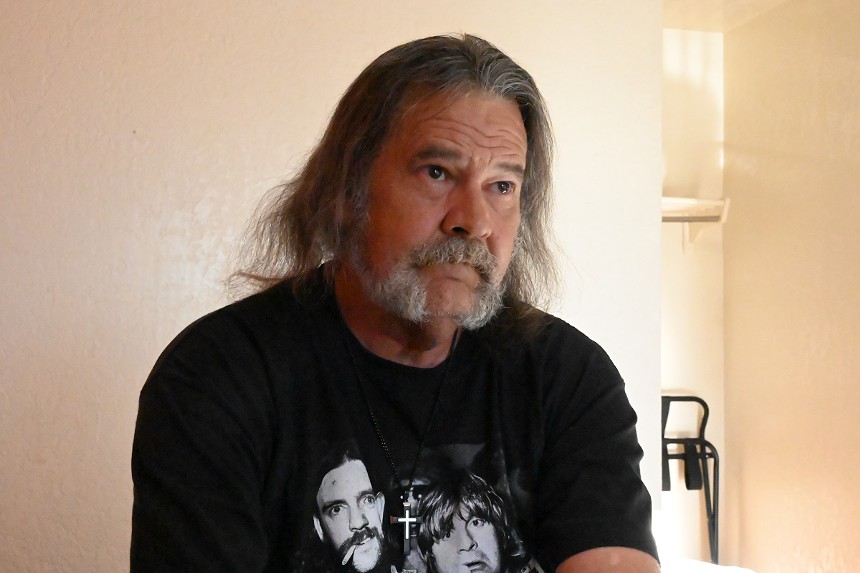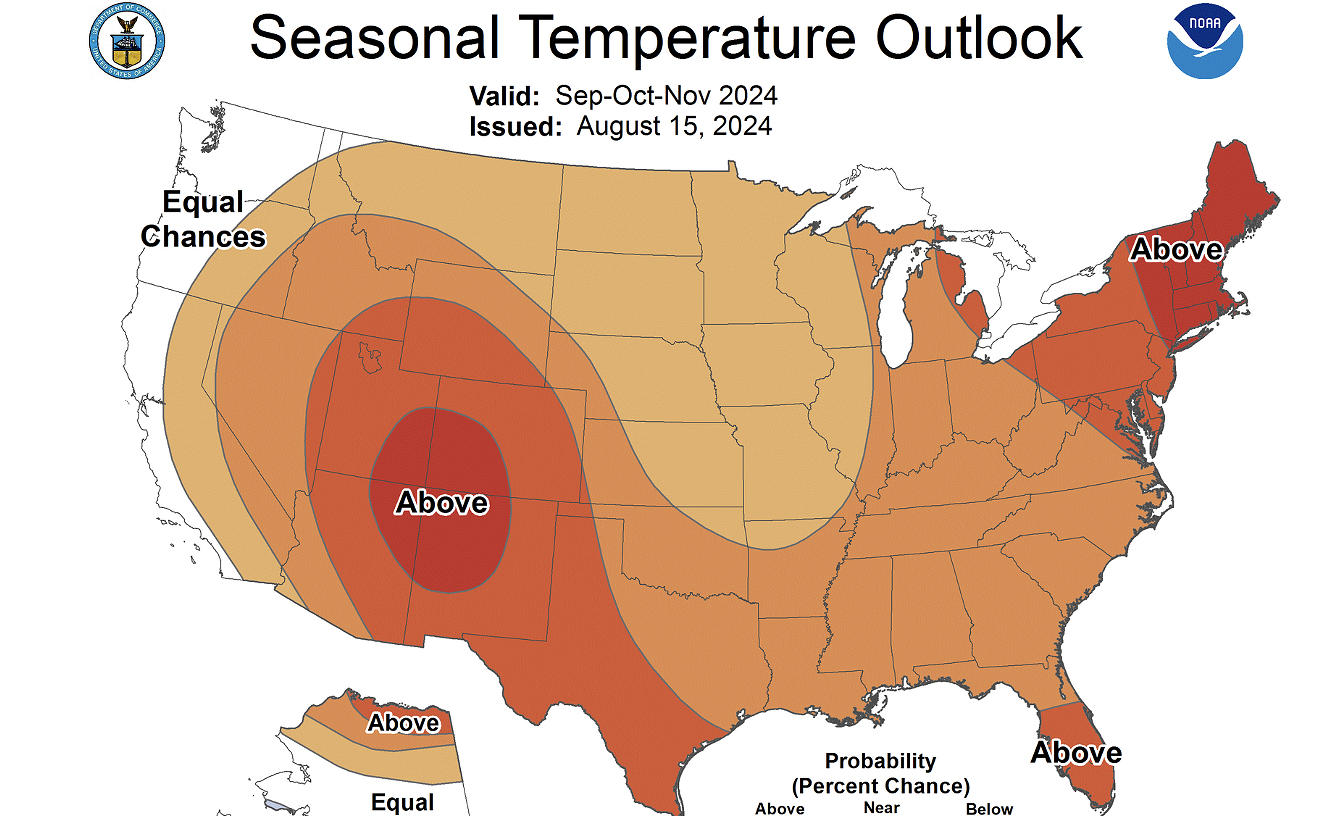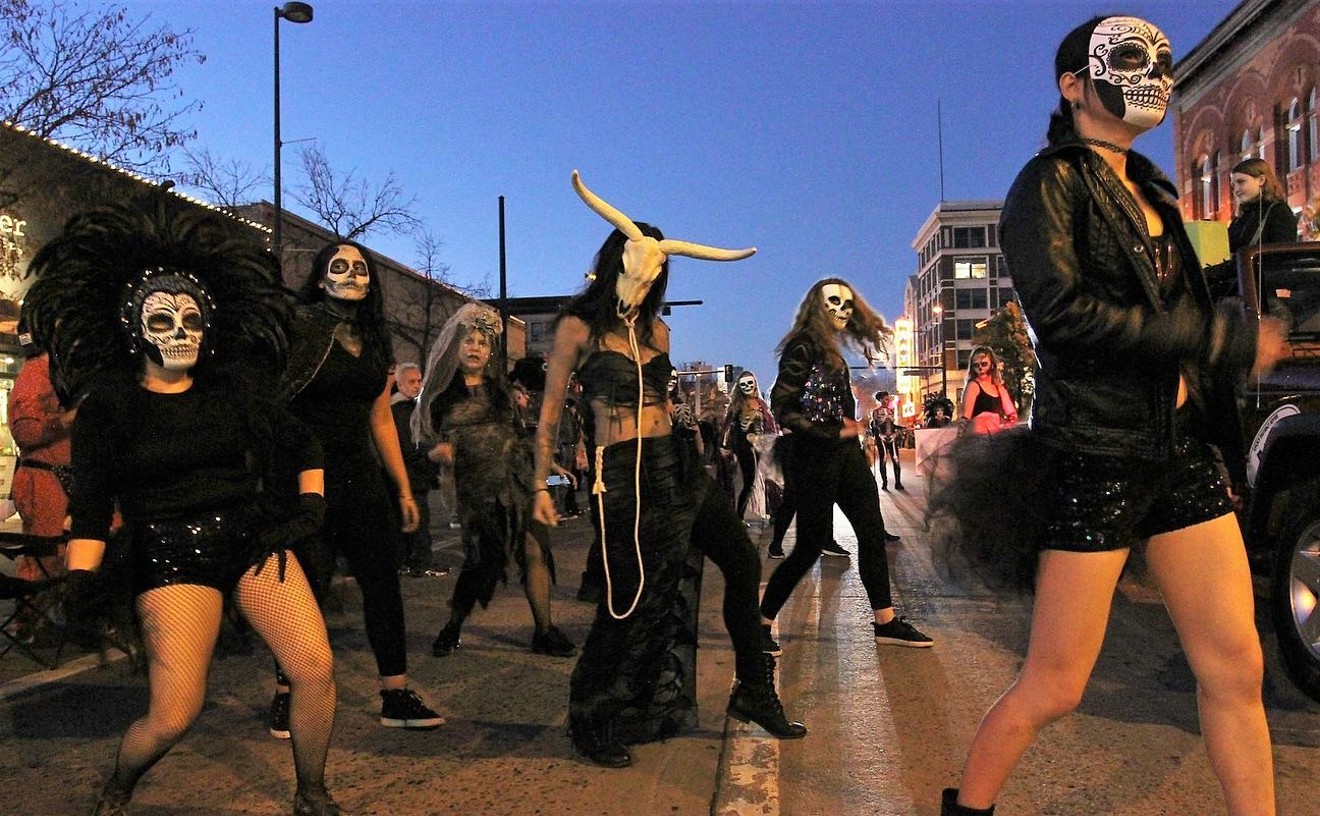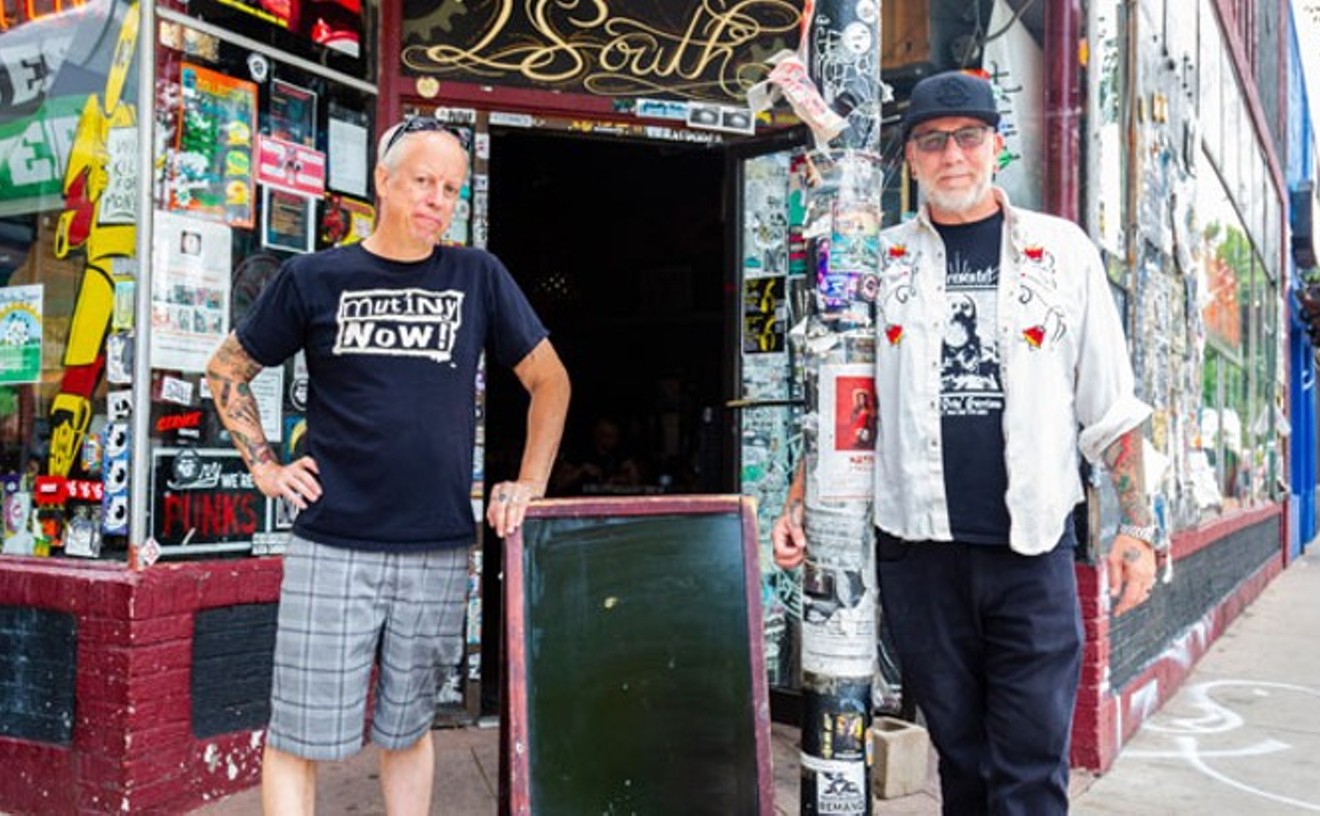Henry's suicide on August 22 was confirmed by the Lakewood Police Department, who said that "messages in his phone indicate he took being fired from his job very hard and was in a bad mental space."
He wasn't the first person experiencing homelessness to commit suicide after sharing their story with Westword. Sue Sanders told Westword in 2020 how an ordinance in Greenwood Village capping motel and hotel stays at 29 days was making it harder to stay under a roof; in August 2022, she shot herself in her car after leaving her cousin a long note explaining she was "out of ideas." That policy is now the focus of a lawsuit by the motel owner against Greenwood Village.
Tragic personal stories like those of Henry and Sanders aren't uncommon, but keeping track of homeless individuals who take their own lives has proven difficult, according to service providers.
He wasn't the first person experiencing homelessness to commit suicide after sharing their story with Westword. Sue Sanders told Westword in 2020 how an ordinance in Greenwood Village capping motel and hotel stays at 29 days was making it harder to stay under a roof; in August 2022, she shot herself in her car after leaving her cousin a long note explaining she was "out of ideas." That policy is now the focus of a lawsuit by the motel owner against Greenwood Village.
Tragic personal stories like those of Henry and Sanders aren't uncommon, but keeping track of homeless individuals who take their own lives has proven difficult, according to service providers.
In 2015, Colorado added a checkbox on death certificates asking whether the deceased was homeless, says Kirk Bol, spokesperson for the Colorado Department of Public Health and Environment (CDPHE). Bol notes that "it’s likely the field was less utilized in the first years following implementation," leading to some underestimations. And even with that option added to death certificates, identifying suicides among the homeless is often unverifiable.
Through the checkboxes, Colorado has recorded fourteen suicides so far in 2024 by people who were homeless. Cathy Alderman, spokesperson for statewide nonprofit the Colorado Coalition for the Homeless (CCH), says those figures are likely higher because it's hard to determine if drug overdoses are intentional at times. Homeless suicides also tend to happen in isolation, with no one informed or no note left behind for anyone, she adds, which can make it hard to rule a death a suicide.
So far this year, 116 homeless deaths were from drug overdoses that were unintentional or happened in an undetermined manner, according to CDPHE. Alderman says that some deaths from overdoses could have been suicides as well.
The number of known suicides by homeless Coloradans has steadily increased since the state added the checkbox for homelessness in 2015. It recorded only three such suicides that first year, but since the COVID pandemic in 2020, more than twenty homeless suicides have taken place each year.

Joe Henry, a homeless handyman, committed suicide on August 22 after losing his job at the Brown Palace and fearing he had no way out of homelessness.
Bennito L. Kelty
In 2023, more than 260 homeless residents in Colorado died from either suicide or drug overdoses that were unintentional or for undetermined reasons, according to the CDPHE.
When looking at all causes of death, last year was the deadliest year for people experiencing homelessness since CDPHE started tracking homeless deaths, with more than 580 homeless Colorado residents dying. In 2015, the CDPHE only tallied fifty such deaths, but that number climbed to 380 by 2020, and then to more than 550 in 2022. So far this year, Colorado has recorded more than 350 homeless deaths.
Looking at both housed and homeless residents, Colorado had about 1,300 suicides in 2023, including more than 160 in Denver County. El Paso County was the only county with more that year, with about 200 recorded suicides, according to theCDPHE.
Through the first six months of 2024, eight people experiencing homelessness committed suicide in Denver, according to the city's Medical Examiner's Office (OME). That's a slight increase from all of last year, when the city reported seven homeless suicides. In 2018, nine homeless Denver residents committed suicide, and that number climbed from thirteen in 2019 to sixteen in 2020. It has been dropping since then, however, with twelve such suicides in 2021 and ten in 2022, according to the OME.
September is recognized as Suicide Prevention Month by the U.S. Department of Health and Human Services (HHS) and nonprofits like the National Alliance on Mental Illness, and September 10 is recognized as world suicide prevention day by the World Health Organization. The point of both is to raise awareness and direct people to resources like the 988 Lifeline, a national 24/7 crisis and suicide hotline run by HHS.
According to Alderman, isolation makes people experiencing homelessness feel uncomfortable with reaching out for help, and professionals trained in suicide prevention can only lend a hand when they know someone is in crisis.
"Outreach workers can help, but they have to know someone is in crisis," she says. "Isolation is a huge issue. Many people experiencing homelessness are disconnected from the community and services, or they have been so marginalized by the community and services that they don’t feel comfortable reaching out and sharing their personal crisis situations with others."
Alderman says she would like to see these awareness campaigns target people experiencing homelessness more to let them know about 988 and other resources. She says that reaching a crisis hotline can be a challenge for homeless residents, who often don't have cell phones.
"I think people experiencing homelessness do have barriers in getting access to crisis services. The first is having a phone and knowing who to call," she says. "While 988 is a great resource, you have to know it is available in order to call it, and to my knowledge, there has not been a targeted education or marketing effort to people experiencing homelessness."












